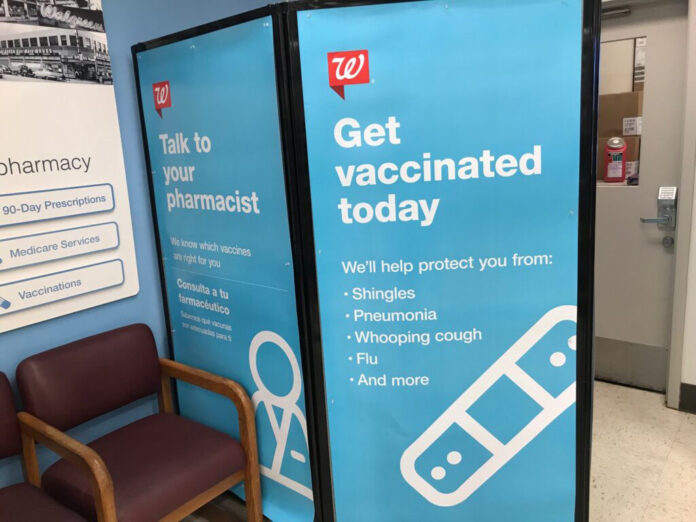The independent Matt’s Local Pharmacy on East Main Road in Middletown recently had 40 doses of Shingrix, the federal government’s recommended vaccine for the prevention of shingles in adults age 50 and older, reserved for those on a waiting list with 80 names on it.
Owner Matt Olivier planned to call those on the list who’ve already had their first shot and give them seven days to come in for their second before continuing down the list.
“We’re just trying to do the best we can to provide those shots in a fair way to the community,” Olivier said.
But nearby at the Walgreens on East Main Road, Shingrix was available first come, first served.
One reason for the different approaches is the R.I. Department of Health does not mandate how pharmacies should handle their limited allocations of GlaxoSmithKline’s Shingrix, which is not on the list of state-supplied vaccines funded by a tax on commercial insurance plans. The state licenses individual pharmacists but not pharmacies.
“We let the practices decide how to handle their business,” said Tricia Washburn, chief of the department’s Office of Immunization. However, the state may tell pharmacists to prioritize certain populations during a public health crisis, which shingles is not, she said.
She noted two CVS Health Corp. pharmacies in East Greenwich during the summer had different policies, one had a waiting list and one had first come, first served.
Theoretically, waitlists offer the ability to serve the highest-risk people, said Jeffrey Bratberg, clinical professor at the University of Rhode Island College of Pharmacy. But those who can at least get a single dose of Shingrix have some protection against shingles, he added.
“There aren’t any state or national guidelines,” Bratberg said via email. “Since pharmacists are extremely time constrained and do not have objective data on those seeking vaccines, first come, first served [and then assured of a second dose] is likely the fairest and most workflow-friendly solution.”
The Rhode Island Pharmacists Association does not have an official position on the issue, said President Kenny Correia.
“This is probably the first vaccine shortage we’ve had in a while, but we’ve seen drug shortages in general as being a huge problem in the health care environment,” Correia added. “Over the past five years, every pharmacy has had to deal with a drug-shortage workflow, to deal with something even as simple as running out of EpiPens, which is what pharmacies are dealing with right now.”
GlaxoSmithKline’s website lists stores and provider offices that received Shingrix in the last three months. The data is refreshed weekly. The frequency and volume of doses shipped is increasing, but demand is still expected to outpace supply “for the foreseeable future,” said spokeswoman Christie Gilmore.













